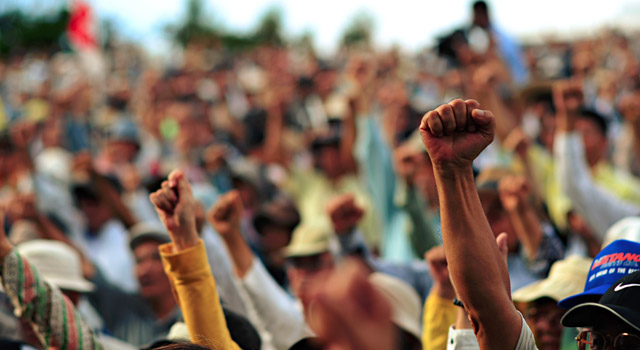
Campaigners will march across South Africa this weekend to demand cheaper and broader access to communications, with march organisers saying government has “handed the democratising power of telecommunications to unaccountable profit-making corporations like MTN, Vodacom, Cell C and Telkom”.
The Right2Know Campaign will hold a “national day of action for the right to communicate” on Saturday.
In Johannesburg, it intends marching with the SOS Coalition from Media24’s offices in Auckland Park to the nearby SABC highlighting challenges facing public broadcasting, media ownership and digital television migration.
In Cape Town, marchers will move from the Naspers facilities in the CBD to Vodacom and Independent Newspapers. Their grievances will focus on press freedom and access to telecoms.
In Durban, there will be a mass meeting on media freedom and diversity.
When it comes to telecoms, the Right2Know Campaign claims that although cellphones potentially bring the democratising power of the Internet to South Africans, this potential “will not be realised with the current high cost of communications”.
“We pay some of the highest costs in the world for airtime and data. South Africa ranks 128 of 144 countries in prepaid mobile rates, while mobile companies have profit margins as high as 30% — double the global average,” Right2Know said in a statement ahead of the planned marches.
“Today, the country is covered in cellphone adverts promising us dramatically reduced call rates, but with a confusing range of “free” extras,” it said “These rates they are promising in adverts are still high by international standards and way above their real costs.”
It said that “most people” continue paying “exploitative rates on existing prepaid or monthly contracts”.
“These cell phone adverts are a marketing trick and we demand that all users should be transferred to the lowest rates offered immediately,” it said.
“This would be a good start, but it is only the beginning of our battle for making telecoms and the Internet accessible to all. It is the right of everyone in South Africa to communicate. Access to affordable telephones and Internet are vital for the health of our democracy.”
The planned marches are timed to commemorate Black Wednesday, which marks 19 October 1977 when the apartheid government banned a number of black consciousness-aligned newspapers and arrested prominent journalists.
“The government at the time declared that these publications were ‘publishing inflammatory material that threatened the nation’s security’,” Right2Know said.
Today, South Africa is a democracy with freedom of expression entrenched at the foundation of our constitution. However, growing unemployment and inequality are pushing social cohesion to its limits and again we see government acting to suppress the free flow of information in the name of ‘national security’.” — (c) 2014 NewsCentral Media




